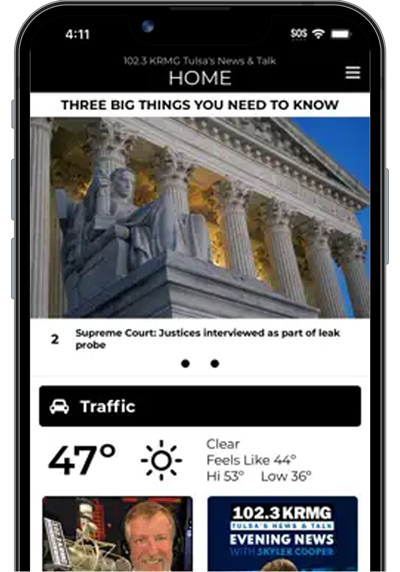TULSA — During a hearing before the D.C. District Court of Appeals on January 9th, 2024, an attorney representing former president Donald Trump argued that no former president could be charged with a crime unless he or she was first convicted of the crime during an impeachment in the U.S. Senate.
[Hear the KRMG In-Depth Report on whether an ex-president can face criminal charges HERE]
That argument seems loosely based on Article One, Section Three, Clause Four of the United States Constitution, which reads:
“Judgment in Cases of Impeachment shall not extend further than to removal from Office, and disqualification to hold and enjoy any Office of honor, Trust or Profit under the United States: but the Party convicted shall nevertheless be liable and subject to Indictment, Trial, Judgment and Punishment, according to Law.”
The president’s attorney, D. John Sauer, argued that the wording means the president can’t be charged unless first convicted via impeachment, but most legal scholars say that his interpretation is a major stretch - and that while the language says a person can face criminal liability after impeachment, it in no way says such liability requires a successful impeachment.
Indeed, Professor Harold J. Krent, Dean of the Chicago-Kent College of Law and author of the book “Presidential Powers,” tells KRMG that argument will not stand up in court.
“That’s exactly the argument he made, and that’s why he’s going to lose,” Krent told KRMG. “It’s simply way too broad, and the court will never accept that kind of absolute immunity from the criminal processes.”
...the Party convicted shall nevertheless be liable and subject to Indictment, Trial, Judgment and Punishment, according to Law.
— Constitution of the United States, Article I, Section 3, Clause 7
Krent notes that courts have held presidents immune from tort claims, but thus far the issue of criminal charges against a sitting or former president remains an open question.
“The issue, both in the D.C. Circuit and Georgia Case, will be: Can the president be criminally responsible for decisions he made while in office, even if he can’t be civilly responsible for damages?” Krent said.
And one argument made by Sauer during that hearing may actually get some traction, he added, regarding the president’s response - or lack of response - to the events of January 6th.
“Is that a personal action, in terms of trying to get re-election, or is that presidential action, even if misinformed or misdirected?” he asked, rhetorically.
[Hear the KRMG In-Depth report on removing a presidential candidate from primary ballots HERE]
On the issue of states removing Trump from primary ballots, as happened in Colorado and Maine, Krent says the law will likely come down firmly on Trump’s side, at least as long as there is no criminal conviction on the record.
“For me, the major question is: Who is supposed to determine whether someone is guilty of an insurrection or giving comfort to the enemy?” he said.
Furthermore, he thinks the issue revolves around the rights of the electorate, not the candidate.
“This really isn’t about (former) President Trump’s rights, it’s about the people’s rights,” Krent told KRMG. “And the people should be able to make their decision on who to vote for in the primary, and for the court to take that away there has to be really clear, I think, evidence. And I don’t think we’re at that stage right now until a court of law in D.C. comes to its conclusion.”





